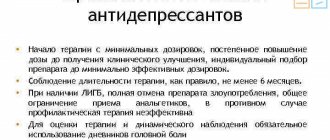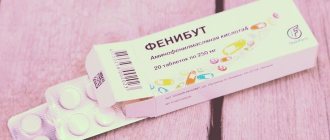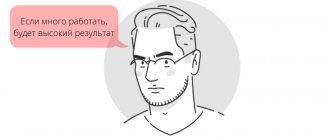Among the vital human instincts, one of the most powerful is the instinct of self-preservation. It is on this powerful instinct that fear is based, conceived by nature as one of the most important ways of protecting a person. Otherwise, humanity would not have survived. But it happens that fear, anxiety, and panic overwhelm a person for no apparent reason. The heartbeat accelerates and is accompanied by pain, blood pressure rises, the person experiences trembling, a sharp sensation of cold or heat, and orientation in space may be disturbed. This condition is known as a panic attack. People who have experienced this condition at least a couple of times are terrified of its recurrence and therefore often carry pills for panic attacks with them.
How to recognize a panic attack
A panic attack can occur in a practically healthy person if, for example, he finds himself in a situation with a real threat to his life. But more often the cause of PA is deviations in the state of human health - somatic, psychophysiological, mental. A panic attack is a companion to neurosis, vegetative-vascular dystonia, pathological fears and phobias. Diseases of the heart, blood vessels, endocrine disorders, trauma and brain tumors are also factors that provoke attacks.
Important! Panic attacks have symptoms similar to a hypertensive crisis or heart attack. A clear understanding of the signs of PA will help to recognize it against the background of signs of a dangerous attack of serious organic pathology.
How an attack begins and goes away:
- A panic attack is preceded by severe anxiety and a feeling of discomfort. The heartbeat quickens, blood pressure may rise and you may feel dizzy, limbs become weaker, and trembling appears. Breathing becomes difficult and you may feel faint. Against the background of these incomprehensible frightening manifestations, fear intensifies and turns into horror, which is accompanied by an acute feeling of approaching death.
- As programmed by nature, under the influence of sudden fear the body is mobilized, the adrenal glands are activated, and hormones are released into the blood. They cause increased breathing and heart contractions, increased blood pressure, accelerate metabolism and increase muscle tone. The purpose of these physiological changes is to overcome stress and cope with danger. But in the case of a panic attack, there is no real danger, the subconscious search for the cause of such a reaction ends in failure, and vegetative reactions arise. Anxiety and fear increase and contribute to additional hormone release. In a matter of minutes the circle closes.
Either the person himself can open this circle and stop the panic attack by trying to overcome anxiety or distract himself from it. Or the supply of hormones will be depleted, and the panic attack will end on its own, as unexpectedly as it began. In this case, medication for panic attacks is not required.
How to stop a panic attack?
During periods of temporary improvement in well-being, many patients go through the contents of the first aid kit, doubting whether they have purchased the right set of products.
You should know: there are no magic cures, especially considering the characteristics of each individual organism. And every VSD sufferer experiences panic attacks differently: some are able to heroically withstand the adrenaline rush without any medications, while others need a whole range of tablets, capsules and sedative drops.
There are several types of medications for panic attacks: herbal (mild), herbal with the addition of chemicals, and only chemical ones, which cannot be obtained without a prescription. Each category has its pros and cons. It is best to entrust the choice of remedy to a doctor; self-medication can aggravate the problems.
First aid in case of attack
As a rule, a person is able to cope with a panic attack on his own, without calling an ambulance. You need to provide a flow of fresh air, for example, open a window or just go outside. You can wash your face with cold water and take medicine for panic attacks. You need to move, breathe correctly.
During a panic attack, breathing usually becomes shallow and frequent, so it is good to change it to deep, slow, diaphragmatic inhalations and exhalations. The method of increasing the concentration of carbon dioxide in the lungs by breathing into a paper bag or at least into palms folded into a hemisphere helps greatly. The main thing is that you need to switch your thoughts from anxiety to positivity and calm at all costs. Remember something very good from your life, rewatch your favorite comedy, call a loved one and distract yourself by talking about something pleasant. Finally, there are many specific exercises for overcoming anxiety.
Anyone who is nearby at the time of a panic attack can also help reduce or stop the attack. In no case should you separate fear and panic, although the sight of someone else’s panic attack does not cause joy at all, but precisely these feelings. You need to gather all your confidence and convince the patient that nothing terrible is happening, everything will end quickly and safely. Hold a person's hand, offer medicine for panic attacks. And only if the panic attack drags on, despite all the efforts of the person himself and outside help, the condition looks threatening, then it is worth calling an ambulance. Specialists will be able to provide assistance with more effective medications for panic attacks in a crisis situation.
Panic attacks: can a therapist help?
Client cases of panic attacks: 1. One of my clients M. The attack began with the fact that she ceased to understand where she was. Because of this, she tried not to go outside unnecessarily, she also believed that the bright sun provoked her PA and she always wore sunglasses when going outside at any time of the year. And I didn’t take them off even when entering the store. And at home the curtains were always drawn and only the lamp was on and it was not turned off at night. Her bag was filled with medications for everything she was experiencing: palpitations, headaches, dizziness, blood pressure, etc. Her circle of contacts was zero; she could only communicate via Skype and only with relatives who lived in another country. She hardly worked, sometimes doing photo shoots for rare clients from the circle of her former acquaintances. She also thought she was going crazy. She was afraid to take a shower because one of the attacks happened to her in the shower. And the second one is on the street, and the third one is in the store, etc.. And thus she tried to avoid the same places, believing that they provoked the PA. Everything in her world was exaggerated, exaggerated. She listened to her body and took any symptom for impending death. She visited almost all the doctors and at first everyone sent her away because they didn’t find anything, but she was persistent and found someone who prescribed her medicine, thus getting rid of the annoying patient. And so she lived for 8 years. Until she, in a state of deep depression after another attack, wrote to me.
2. I met a rather young man, slightly over 30 years old, at the therapist’s office in the hospital emergency room, the door to the office was open and I unwittingly witnessed his desperate story that he had been visiting doctors for a year and no one could make a diagnosis, they play football one after the other. There are already several shoe boxes with medicines at home, and the condition is getting worse. He was very worried, if not scared, and demanded (!) to be taken to the hospital for examination. He was refused! His wife and little daughter were sitting next to me. I told the woman that this was a PA and that working with a psychotherapist, a clinical psychologist, or just a psychologist in the subject could help. She told me that he was already annoying her and she was ready to get a divorce so that he wouldn’t blow her mind with his fits, but she took the business card.
Here are two examples of how PA can manifest itself. We can say that the state of “pitch hell” enters the lives of such people and it becomes part of their life. I read from one specialist: “Their life is like a horror movie that happens to them in reality, but the people around them don’t see it” - I completely agree with this definition. Because these people are scared, no one and nothing can help them, and the longer this goes on, the more intensified it becomes. They become fussy, superstitious, suspicious, embittered, exhausted, confused, and afraid. Hope for recovery disappears, faith in doctors and just people disappears and they simply hate such a life. As a result, you are left alone, destroyed emotionally, physically and mentally.
So what is a Panic Attack?
Panic attack syndrome is more common than is commonly thought - it affects approximately 5% of people, mostly young people - from 20 to 30 years old. Moreover, women suffer from panic attacks more often than men.
A panic attack is an inexplicable, painful attack of severe anxiety for the patient, accompanied by causeless fear, combined with various vegetative (somatic) symptoms. This is the definition from Wikipedia. It is very dry compared to what I described above. And the worst thing is that many specialists, doctors and psychologists have no idea how to work with this.
A panic attack, from my point of view, is as if someone threw a snowball in the mountains and this, in turn, provoked an avalanche, under the rubble of which a person found himself and, no matter how much he wanted to, he could not get out on his own. PAs themselves are not dangerous, but they can make life completely unbearable and over time lead to the development of depression, phobias and severe neuroses - which, in turn, provoke an increase in the frequency of crises. PAs change a person’s behavior - he begins to avoid situations in which this disorder may manifest itself, becomes nervous and suspicious, constantly listens to his state and lives in fear of a new attack - (this is exactly the behavior that client M. had - the first case)
What to do?
First, you need to understand the person himself that these are precisely attacks of a Panic attack, and not something else. After all, not all people exposed to them know what exactly is happening to them. Very often, PA is confused with heart disease. A panic attack, or, as it is also called, a vegetative crisis, can begin with pain in the chest, a feeling of lack of air and a rapid heartbeat. Patients often try to relieve these symptoms with Corvalol or other similar drugs, but in the case of PA this, as a rule, does not have any effect.
The most common signs or symptoms of PA are:
· sweating · chills · tremor, i.e. trembling both throughout the body and in individual parts · dizziness and a feeling of impending fainting, · nausea · feeling of derealization and depersonalization (“this is not all happening to me”) · and most importantly - a fear that cannot be explained and is very difficult to control! However, you should know that there may not be fear - sometimes patients do not panic during an attack, but feel melancholy, depression, and are tearful or aggressive.
Causes of the disease
PA can manifest itself as part of vegetative-vascular dystonia, although such a disease is not officially recognized in medicine. Sometimes they begin after noticeable changes in life (not always bad) or after a stressful situation, for example: · a strong quarrel or scandal · betrayal · divorce · job loss · loss of a loved one · rape · accident · surgery · failure at an interview or exam, etc.
Part of the cause of panic attacks may also lie in physical diseases - such as mitral valve prolapse (a cardiac pathology that occurs when one of the heart valves closes incorrectly), hyperthyroidism, hypoglycemia and others. An attack of PA can be triggered by taking certain medications or stimulants, ranging from caffeine to strong CNS stimulants. And finally, panic disorder may be one of the manifestations of depression.
Types of disease
PA is divided into three types: 1. Spontaneous: it appears suddenly, without any noticeable reasons. 2. Situational: occurs against the background of a specific traumatic situation or in anticipation of such a situation - for example, during an exam or immediately before it, during a quarrel or in anticipation of a conflict. 3. Conditional-situational: often manifests itself due to the influence of some chemical or biological “activator” of the nervous system - for example, when taking alcohol, caffeine or drugs, or when there are changes in hormonal levels.
The duration of attacks varies from several minutes to several hours, averaging 15-30 minutes. The frequency of attacks ranges from several times a day to 1-2 times a month. Sometimes the gap between episodes can be very long - up to several months. However, sooner or later they return.
What to do?
It is possible to get rid of PA, but this requires the help of a specialist - after all, the treatment regimen depends on the reasons that caused this disorder. First, you should turn to medicine and undergo a comprehensive examination to rule out organic causes of such a disorder. This will require visits to a therapist, endocrinologist, neurologist, and cardiologist. If doctors cannot make an unambiguous diagnosis, then you should consult a psychotherapist. With a competent integrated approach, PA can be removed fairly quickly. Leaving them without therapy is very dangerous - as a rule, after some time, PAs significantly reduce the quality of life, negatively affect the mental and physical state, performance, and provoke serious problems in terms of social adaptation.
Why do you need a psychotherapist?
It is this specialist, I will make a remark, who understands this topic! - will be able to help you, for one simple reason, that he understands the mechanics of the onset of the disease and the ways out of it. At the same time, he acts in each specific case in a targeted manner, i.e., he applies an individual approach.
How does psychotherapy work?
Therapy begins with asking the person in detail about when and how the first attack happened? What negative thing happened shortly before in a person’s life? Thus, they are looking for the cause that triggered this syndrome - and this is the most important thing!
Sometimes there are several reasons, and it is necessary to find the very first one, which then begins to wrap around a huge snowball, which leads to PA.
After all, PA is a consequence, the body’s reaction to something negative, which the person’s psyche could not cope with on its own, or the person simply did not pay attention to it and continues to live in the same rhythm in which his body feels very bad.
Then they draw up a step-by-step plan for exiting the PA.
Also, a person is taught how to cope with attacks independently and together they select exactly those methods that will help a particular person.
Here are some self-help tips:
· The simplest one is to start counting your own pulse for 15 seconds, then start breathing according to the rhythm: 4-4-4-4 (inhale-hold-exhale-hold)
· Compose your own song about PA or find a melody that calms you down and play it every time an attack occurs
· Start counting any objects around: people, cars, dogs, branches on a tree
· Carry a pencil and notepad with you and write down everything you see or start remembering the multiplication table and write it down.
The goal is to distract yourself from the attack in any way that works for you.
Returning to therapy: during consultations using different psychotherapeutic methods, each specialist has their own, they analyze why a person got into that situation and what can be done about it to reset it, that is, remove the negative charge and their influence.
Between meetings, the psychotherapist gives homework, and here everything depends on the specific case: read books for someone, watch videos, draw, do certain practices, keep a diary. Sometimes family members are invited if necessary.
In rare cases, they offer to get additional advice from other specialists: narcologist, kinesiologist, psychiatrist. And if necessary, they continue to work in contact with them, which gives confidence that the process is under control from all sides.
Of course, this is not a quick process and it all depends on the specific case, on the degree of neglect, on the level of awareness, on the readiness to get rid of PA and on the person’s persistence. As a rule, the attacks become less frequent and weaker at first, then go away completely. But, in order to understand that they have passed, it is absolutely necessary for a year to pass without PA!
I can say that you can try to get rid of PA on your own, but then it will take much more time and effort.
I wish you to be healthy and prosperous!
Treatment methods
The earlier treatment for this disorder is started, the easier it is to achieve a positive result. The main ways to get rid of the disease:
- Drug therapy.
- Psychotherapy.
- A person’s independent work to change their lifestyle and attitude towards life circumstances.
Medicines for panic attacks are good primarily because they act quickly. A panic attack can be relieved in just minutes. Many of them are of plant origin and are affordable for anyone. An important factor is ease of use. Is it possible to compare quickly taking a pill with long-term work to find out the root causes of panic attacks, resolve your internal conflicts, master special exercises, breathing and meditative practices? But the time factor in this case does not always play on the patient’s side. The side effects and contraindications of many medications have not been canceled. Therefore, if the disease is in its early stages, you can do without taking medications.
Psychotherapeutic treatment can occur either in combination with drug therapy or independently, depending on the severity of the disorder. With the help of a psychotherapist, the patient searches for and explores the causes of anxiety and panic, and uses various techniques to combat the symptoms. Cognitive behavioral psychotherapy teaches a person to develop patterns of behavior in anxious and stressful situations. Nowadays, you can even learn more about the possibilities of psychotherapy in treating this illness online. In particular, Nikita Valeryevich Baturin, a psychologist with many years of experience, has accumulated extensive experience in overcoming such conditions.
We recommend watching the video on how to relieve a panic attack or find a method of self-prevention:
Prescription medications for panic attacks
The list of drugs prescribed by a psychotherapist today is truly amazing.
Tranquilizers, antidepressants, and antipsychotics can return a person to a full life without panic attacks, but provided that the doctor selects the right drug and the patient strictly follows all instructions. The priority drug in the treatment of panic attacks are SSRI antidepressants. They have a good anti-anxiety effect, few side effects, and can be taken for a long time without serious health consequences. But for the antidepressant to start working, it takes time, about 2-3 weeks. And to reduce anxiety during this time, in addition to an antidepressant, a tranquilizer is prescribed, it can be:
- Atarax is a very drowsy drug, so it is recommended if you have insomnia.
- Grandaxin. A tranquilizer with an average anti-anxiety effect, but with a minimum of side effects. Therefore, it is a good drug if the situation is not severe.
- Phenibut. This drug is something between a tranquilizer and a nootropic. It has an average anti-anxiety effect, similar to Grandaxin.
- Phenazepam, clonazepam are strong tranquilizers that effectively suppress panic attacks, eliminate insomnia, and other symptoms. Reliable drugs to relieve anxiety.
All of these tranquilizers, except atarax, are addictive, so it is not recommended to take them for more than a month. This is especially true for phenazepam and clonazepam. These drugs are needed only for the first time, to relieve anxiety until the antidepressant begins to take effect.
If the situation is severe, then an antipsychotic is added to enhance the effect of the antidepressant. Almost all antipsychotics make you very drowsy, so it is better to take them at night and can be used if you have insomnia. Neuroleptics, like antidepressants, can be taken for a long time.
Remember that the causes of panic attacks are psychological, and pharmacological drugs, no matter how hard they try, will not be able to eliminate them. The drugs simply reduce your anxiety while you take them. Therefore, in parallel with taking medications, psychotherapy is needed to solve the problem - working with a psychologist.
Medicines for the treatment of PA
Drug treatment of panic attacks involves individual selection of medications for each patient. The choice of drug for panic attacks is usually made based on five general groups:
- Sedatives.
- Anxiolytics.
- Antidepressants.
- Neuroleptic drugs.
- Nootropics.
Important! Pills for panic attacks and fear are prescribed and controlled by a doctor only!
For your peace of mind (and peace of mind is practically the main condition for defeating panic attacks), it is good to understand what medications for panic attacks and phobias can be prescribed by a doctor. Awareness in this case will not be superfluous.
Sedatives
Sedatives are perhaps the first thing people start drinking during panic attacks, often on their own. In the early stages, these are indeed the most used remedies. Most often they are made from plant materials or are based on bromine. To produce sedative medications for panic attacks, natural ingredients such as valerian, motherwort, mint, St. John's wort, lily of the valley, passionflower, and peony are used. Among the sedative drugs, the usual Valerian, Corvalol, Valocordin, Validol, Persen, Novo-passit are widely known.
Since the concentrations of active ingredients in sedative medications are low, a prescription to purchase them from a pharmacy is not required, and you can treat panic attacks with some sedative medications yourself.
These drugs are good at reducing anxiety and irritability, promoting sleep, and have a moderate effect on the heart, reducing rapid heartbeat.
This is interesting! Alcohol tinctures of plants with a sedative effect act quickly, within 5–30 minutes. Tablets have a slower effect, but have a cumulative effect, so they are prescribed for course use.
Tranquilizers
Tranquilizers (also known as anxiolytics) are a synthetic remedy for panic attacks. They have the following effects:
- anxiolytic (anti-anxiety);
- sedative;
- anticonvulsant;
- hypnotic;
- vegetative stabilizing;
- antiphobic;
- muscle relaxant.
Important! When taken, tranquilizers quickly cause an addictive effect.
Due to addiction, the course of administration should not exceed two weeks; a doctor’s prescription is required for purchase. Depending on the active substance, anxiolytics are divided into four main groups:
- Benzodiazepines, some of them are Noosepam, Phenazepam, Diazepam.
- Diphenylamine: Atarax, Amizil and others.
- Carbamine esters - Meprobamate.
- Derivatives of other chemical groups, including Afobazole, Spitomin, Buspirone, etc.
Tranquilizers are also divided by duration of action; there are three types. Short-acting agents retain their therapeutic effect for up to 6 hours, medium-acting for 24 hours, long-acting for up to 48 hours. Today, three generations of drugs for panic attacks from the anxiolytic group are available.
Antidepressants
Antidepressants for panic attacks are used because regular panic attacks and continuous anxious anticipation of waves of panic can cause signs of depression. The neural network of the brain is exposed to the active substance, and its normal functioning is restored. These drugs also help restore emotional stability, reduce excitability, tension, general anxiety, improve a person’s overall mood, and prevent panic attacks.
When treating panic attacks with antidepressants, the dosage prescribed by the doctor is small at first, gradually increases, and then decreases again until the drug is completely discontinued. The duration of admission is long, from six months to a year. The advantage of these medications is that they are not addictive, but there are many disadvantages. Dizziness and headache, dyspeptic disorders, lethargy, feeling of weakness and drowsiness, insomnia.
Today, the fourth generation of antidepressants is available: Milnacipran, Remeron, Wellbutrin, Plizil. They have less side effects and high speed of action. However, proven products from the first two generations remain popular because they are more affordable. These are Amitriptyline, Clomipramine, Fluoxetine, Venlafaxine.
Neuroleptics
Second generation antipsychotic drugs are used to treat panic attacks. They are usually an adjunctive therapy rather than a primary medication. Neuroleptics are a kind of sedative, they reduce reactions to external stimuli, relieve psychomotor agitation and affective tension, suppress fear, and help relieve aggressiveness. These are the drugs Sonapax, Melleril, Thiokril, Truxal.
When treated with them, the reticular formation of the brain, which is involved in the control of many body functions, is inhibited, and its activating effect on the cerebral cortex is weakened. They do not have a hypnotic effect. Long-term use can lead to tremor of the hands and disturbances in the endocrine system.
Nootropic drugs
These panic attack medications are usually prescribed in combination with other anxiety medications. They regulate the activity of the central nervous system, improve brain function, memory, and attention. The peculiarity of these drugs is their ability to increase the body’s adaptive capabilities, the ability to withstand stress and cope with heavy physical and mental stress, and with fear. The most famous of the nootropics is Glycine.
Panic attack medications without a prescription
This category of drugs attracts the largest number of patients.
Many people mistakenly believe that “over-the-counter” pills are not always effective, but are completely safe, so you can increase the dosage yourself - nothing will happen. But it's not that simple. Even an overdose of ordinary water can be fatal, but what about medications?
Pros: average price category, accessibility, relative safety, first aid in critical stressful situations.
Disadvantages: lack of a treatment regimen, thoughtless dosage, impact not on the source of the problem, but on suppressing its individual manifestations.
The most popular medications for panic attacks that can be purchased without a prescription:
- Glycine. This is the easiest and cheapest drug, which is often prescribed even to teenagers at the end of the school year, associated with nervous overload. Suitable for patients whose panic attacks do not reach the point of “help, I’m dying.” To stop an attack, large dosages of 600 mg or more are needed.
- Anaprilin. The most “favorite” drug of alarmists. Effective, but extremely dangerous. It is surprising that it is generally sold without a doctor’s prescription to anyone who wants it. A tablet placed under the tongue literally forcibly stabilizes blood pressure and heart rate. An overdose can end badly, and too frequent use causes the body to become addicted and worsen the symptoms of a panic attack.
- Afobazol. A sedative that activates special proteins inside the cells of the nervous system, due to which its “repair” occurs. The good thing about the tablets is that they do not cause addiction or side effects (in most cases), and do not inhibit the patient’s thought processes and attention. But you need to undergo a course of treatment before the effect of the drug makes itself felt in a useful way. Suitable for relieving mild panic attacks.
- Valocordin (Corvalol). Phenobarbital-based drops help relieve the critical and frightening symptoms of a panic attack. The medicine inhibits the activity of the brain and nervous system, relaxes muscles, causes a feeling of drowsiness, and even improves mood. But if you take this drug too often, an unwanted amount of phenobarbital will accumulate in the body, as a result of which the patient will not be able to relieve his panic attacks with any medications.
- Kapoten. A drug that many people with ADHD take during an acute panic attack, although the pills are aimed at lowering blood pressure. Kapoten helps relieve extrasystoles, which are incredibly frightening for the patient. And when the pressure drops and the heart rate returns to normal, the panic will subside. An overdose of Capoten threatens a sharp decrease in blood pressure and fainting.
Medications for panic attacks of plant origin can provide good “one-time” help. But their effect is usually very mild. For deep depression, phobias and serious sleep disorders, these medications are unlikely to provide significant help. However, the average VSD student would not refuse to carry these “natural” drugs with him:
- Herbs, as well as tablets and syrups based on them (Valerian, Motherwort, Coltsfoot, St. John's wort, Passionflower, Peony).
- Novopassit. A combined drug in tablets containing a lot of useful herbal supplements.
- Dormiplant. A drug based on Valerian and Melissa.
- Persen. The tablets are herbal based and have a sedative effect. Persen Forte capsules contain twice as many soothing ingredients.
You can have all the listed drugs in your first aid kit for panic attacks, if the adrenaline rush is not so frequent and not so serious. In rare crises, the patient himself does not know when this will happen again, and the feeling of “salvation” at hand gives him moral support. But if a panic attack is a frequent guest in the life of a VSD person, and each visit promises immense horror, you need to pay attention to another category of drugs.
How to help a person having a panic attack?
- If you find yourself around someone who is experiencing a panic attack, your main goal is to remain calm and confident.
- Stand opposite the person, take his hands (if he allows), tell him that everything is normal, that this is just a panic attack, it is not life-threatening, you just need to pull yourself together.
- Start with proper breathing - breathe evenly and confidently, clearly saying “Inhale for one or two, hold your breath for one or two, exhale for one, two, three, hold your breath for one and inhale again for one or two...”.
- Stroke the person, hug him, say “I’m with you!” and that everything will be fine during the attack.
- Do not let the person go until the attack passes; let him speak out, remaining confident and calm.
- After the panic attack is over, talk to the victim about the need to seek professional help.
Expert: Galina Filippova, general practitioner, candidate of medical sciences
Prepared based on materials:
- Emergency medical care. Per. from English/Under N52 ed. J. E. Tintinally, R. L. Crome, E. Ruiz. - M.: Medicine, 2001.
- Guide to emergency medical care. Vertkin A.L., Bagnenko S.F. - M.: GEOTAR-Media, 2007
Panic attack and alcohol
People often try to relieve stress and fight depression with alcoholic beverages. When a panic attack begins, a drinker always knows what to do during the attack. After a certain dose of alcohol, the body relaxes and unpleasant symptoms disappear.
Over time, it becomes difficult to achieve the desired effect with the usual amount of alcohol. The person increases the dose. Alcoholic drinks have a negative effect on the nervous system. Panic attacks become more frequent.
ATTENTION! Alcohol does not help cope with a panic attack, but only aggravates the patient’s condition. During the period of treatment of the disorder, alcoholic beverages should be completely abandoned.
Causes of panic attacks
A panic attack can be described as an attack of poor health, accompanied by a feeling of panic and various physical manifestations.
IMPORTANT! You can talk about a panic attack only in case of unreasonable fear, in the absence of a threat to life and health. If panic is caused by an upcoming interview with an employer, an exam, speaking in front of an audience, etc., we are talking about a natural reaction of the nervous system.
Scientists believe that panic attacks are caused by the numerous stresses that accompany a modern city dweller. People who have unresolved internal conflicts are susceptible to attacks. Anxiety states can be a reaction of the nervous system to an aggressive environment.
Panic attacks are common these days. At least 5% of residents of large cities are susceptible to attacks.
The danger of this condition lies in complications in the form of alcohol, nicotine or drug addiction and suicide.
How to behave during the interictal period
Therapy for panic attacks during periods of calm includes several key points. The main thing is to get rid of stress, traumatic situations and internal tension.
It is very important to increase the body's ability to withstand stress. A set of measures will help with this .
- Learn to control your emotions and actions, take responsibility for them. To do this, analyze situations, your decisions, why you acted this way and not otherwise, what would have been better for you to do in this case. Write down your thoughts. If you have made wrong actions, review them and build a model of correct behavior. Now you know how to behave in a similar situation.
- Let more positive emotions into your life. Watch pleasant, funny films, do what you love more often, communicate with positive people. Try to be alone less.
- Stop making derogatory remarks about yourself. Praise yourself for your achievements, accept your shortcomings and work on them. Don't make comparisons between you and other people. Pay attention to yourself, look after yourself.
- Try not to mentally return to traumatic situations that happened to you in the past. To avoid reliving negative emotions. Try to remove all things that may remind you of this event.
- Find something you like. Direct your energy to creativity, not to dark thoughts.
Meditation will help you relax. It will relieve not only emotional tension, but also muscle tension. There are professional practices that require special training and knowledge of techniques.
At the everyday level, you can meditate by turning on relaxing music and taking a comfortable position. The best way to do this is to lie down. Close your eyes or focus on one object. Breathe deeply, evenly and mentally repeat the pre-prepared phrases: I am calm, my fear is receding, I have everything under control, and any other phrases adapted to your condition.











